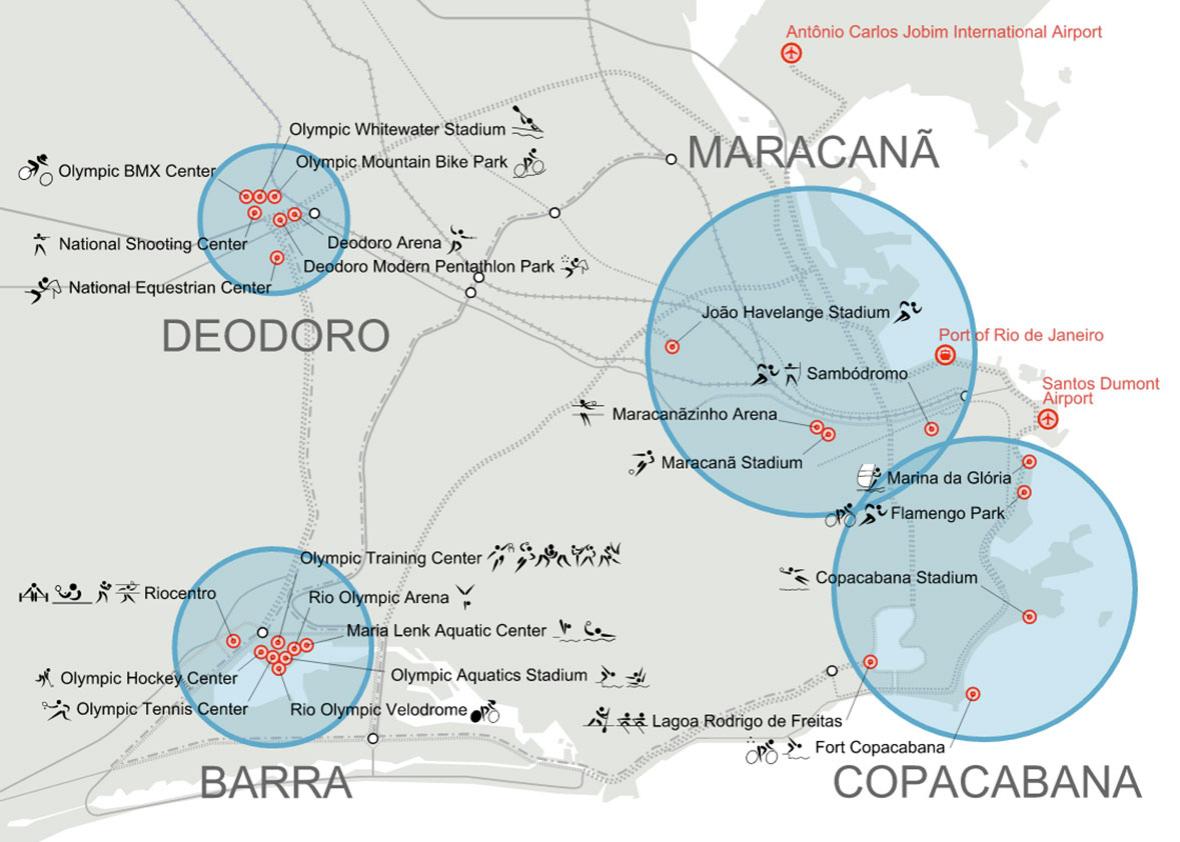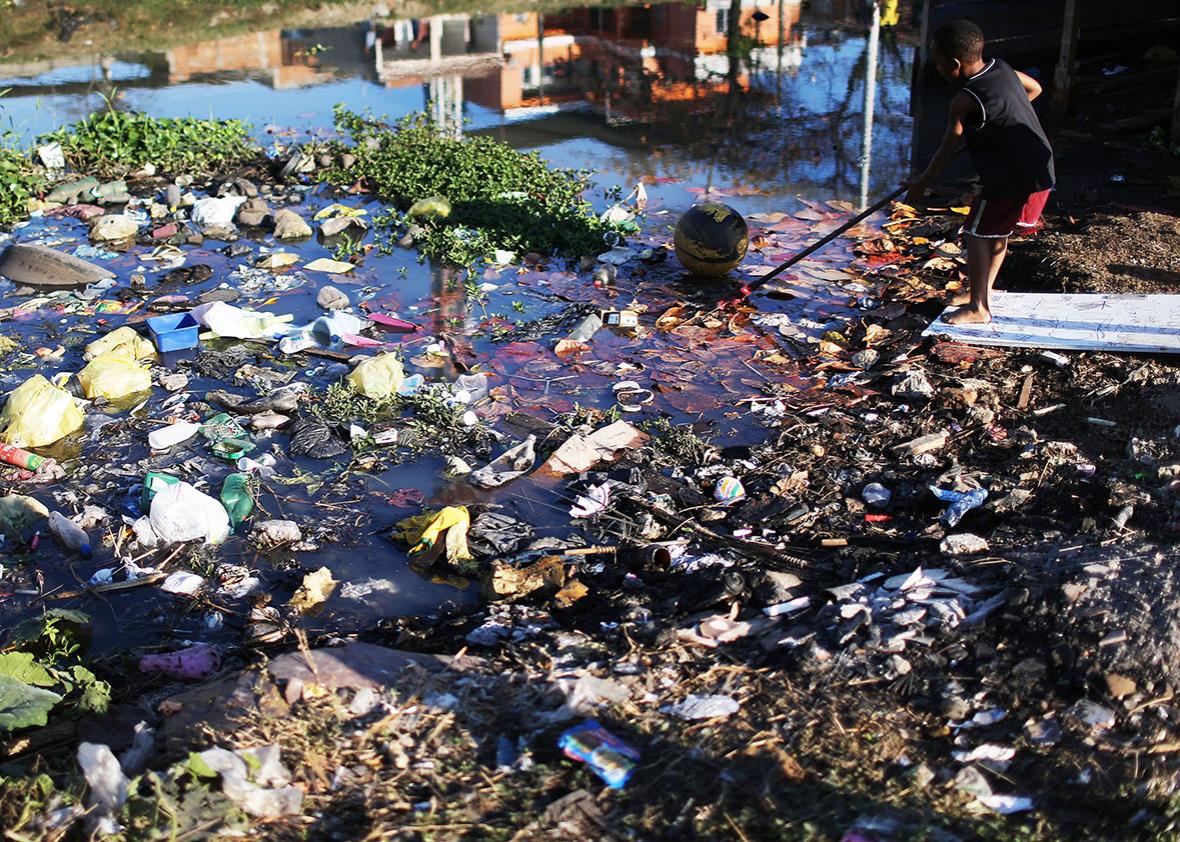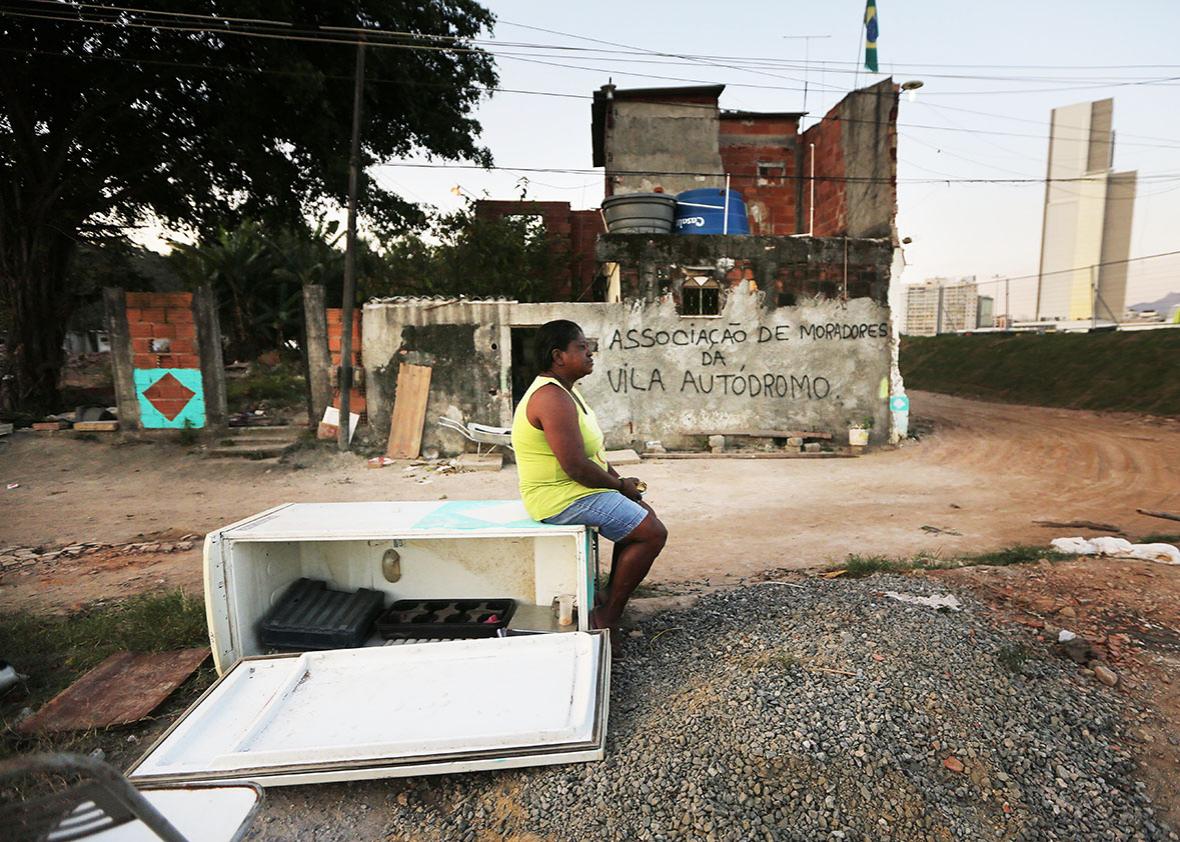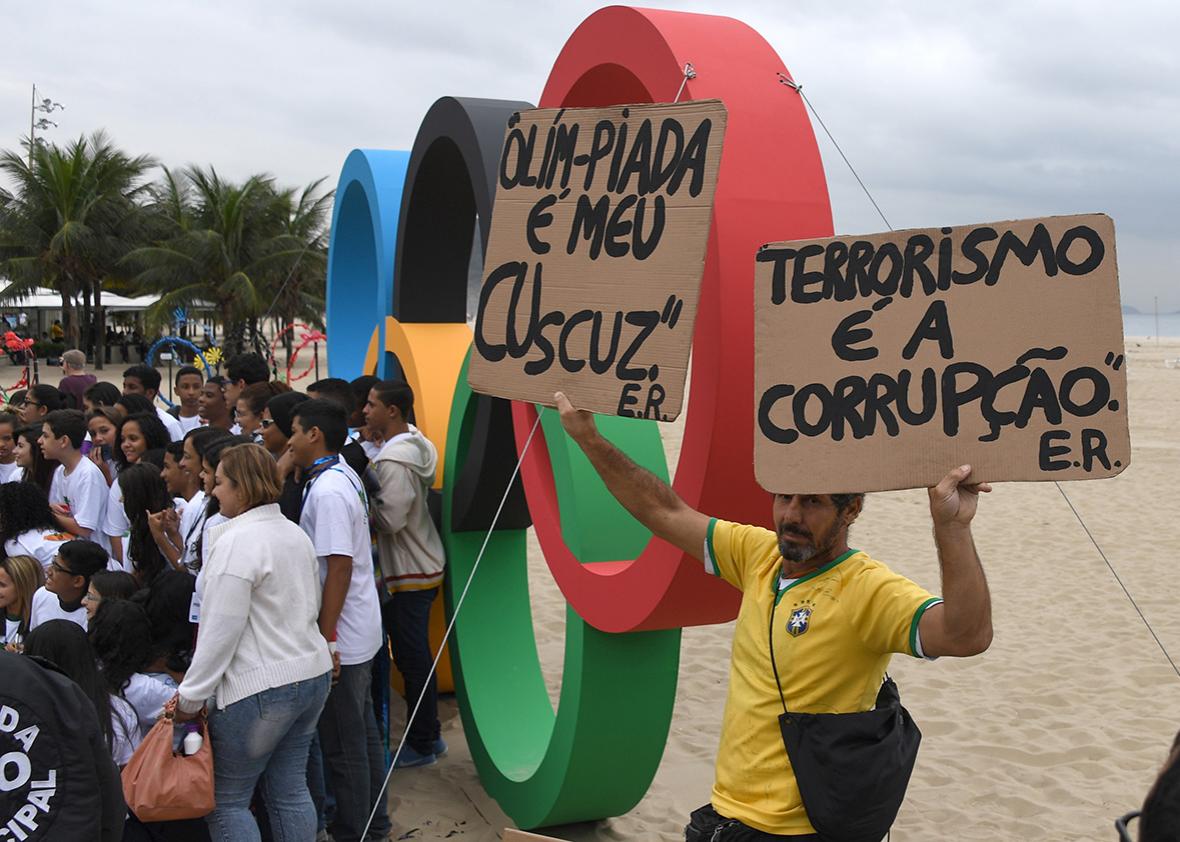Why are we here?
The Summer Olympics are set to begin in Rio de Janeiro on Friday.
Oh, that’s nice. How’s everything coming along?
In the past couple of weeks, a handful of big stars have dropped out, citing (perhaps disingenuously) concerns about the Zika virus. Public health experts are worried about water and air quality. Days after the Australian delegation complained that the Olympic Village was uninhabitable, the athletes’ rooms were robbed when the building was evacuated for a fire alarm. There have also been two high-profile, sport-related (but non-Olympic) kidnappings, of a Formula 1 executive’s mother-in-law, later freed by police, and of a jujitsu star, who was robbed by the police, namely a pair of cops on motorbikes.
That seems bad. How are people feeling about all this?
Appraising the Olympics as a whole is difficult, since it means different things to planners, residents, visitors, and athletes. Some parts of Rio have been transformed; others haven’t changed at all. The preparations for the games have been going on for years and have ranged from minimally disruptive to deeply unjust. The consequences of hosting the Olympics, including promised financial upsides and the future life of construction projects, won’t be known for months or years.
With those caveats in mind, here’s one way to think about how the 2016 Olympics are being perceived in Rio. When the country was preparing for the World Cup three years ago, Brazilians would say imagina na copa—“imagine this during the World Cup.” Traffic jam? Garbage strike? If you think it’s bad now, imagina na copa. In the end, the competition went off without a hitch. (Except for that one night in Belo Horizonte, which remains a great stain on the country’s honor.)
Imagine the Olympics? Brazilians would prefer not to. More than half the country has “no interest” in the games, and another third has just “a little interest.” You can understand why. The 594-member Brazilian Congress—more than half of whom are embroiled in some sort of legal trouble—is trying to oust President Dilma Rousseff. The interim president, Michel Temer, is a lusty poet and right-winger who has himself been implicated in Brazil’s extensive corruption investigation. The country is in its most severe recession in more than 100 years. On Wednesday, an Olympic torchbearer pulled down his pants to reveal a political message written on either side of a jaguar-print thong: “Temer Out.”
In Rio, where the Olympics will take place, the situation is no less grim. The state of Rio, which encompasses the city, was “nearing a social collapse” back in April. In June, the governor announced a “state of public calamity” in government finances. Now, the circus comes to town.
Why are the Olympics being held in Rio anyway?
The competition to host the Olympics has remained inexplicably fierce, despite the exacting demands of the International Olympic Committee, the dubious economic benefits, and the headaches of construction and adaptation of Olympic projects. Rio is the first South American city to host the Olympics; when the games were awarded in 2009, the IOC president said the bid was flawless. Brazil celebrated. The projected total cost of $14.4 billion (per the Organisation for Economic Co-operation and Development), looked pretty different at that time, when the country was pulling out of recession with 7.5 percent GDP growth in 2010.
Not so flawless now, is it?
No. But the Olympics are such a gigantic undertaking that it can be difficult to understand just how every single problem fits into this big puzzle of badness.

Felipe Menegaz
The first thing you need to know is that there are four settings for the games. The Olympic Village will be in Barra de Tijuca, a coastal suburb separated from the city by a national park. Water and beach sports will take place on the coastline around the city’s famous beaches, Copacabana and Ipanema, and in Guanabara Bay, along whose shores Rio was founded. A handful of events will take place in Deodoro, a middle-class suburb about 18 miles west of downtown Rio. Others will occur close to downtown Rio, at the famous Maracanã Stadium and at other sites in the area.
Ah, the Maracanã—site of Brazil’s infamous defeat to Uruguay in the 1950 World Cup, a game with an official attendance of 200,000.
Quite right. The Maracanã, which (thanks to safety regulations and renovations) now seats about 80,000 people, has a chance to bring two moments of sunshine to the games. First, it will host the opening ceremony on Friday. Four years ago, in London, that display of national pride marked the beginning of an opinion shift—Britons too had dreaded the Olympics but wound up taking pride in a job well done.
Later, the country’s largest venue hosts the international soccer competition. With star forward Neymar rested and in good health, the team will try to recover from its 2014 humiliation and a dispiriting early exit at the Copa America Centenario in June.
Wasn’t there an explosion there on Sunday night?
That’s true: Brazilian security forces detonated a bag at the stadium as part of a training exercise. Because of its size and symbolic importance, the Maracanã is considered a high-risk terrorism target. Typically, foreigners in Brazil would be more worried about street crime. (The murder rate in Rio has fallen by almost half since 2008, though violent crimes are slightly up this year.) Rightfully so: Brazil is a virtual stranger to the type of Islamic terrorism that has killed hundreds this year in France, Belgium, Turkey, and the Middle East. But earlier this month, Brazil did arrest members of a ragtag group influenced by the Islamic State. And after Munich, every Olympic Games is considered a high-risk event.
Rio has an IBM-built “command center” to help coordinate a response to an attack. Brazilian police have been sent to observe foreign sporting events and received special training from U.S. officials. The country will deploy 85,000 security personnel for the games—about twice the size of London’s detail in 2012. In an unusual development, nearly six-dozen foreign powers will help the Brazilians with intelligence operations on the ground.
On the other hand, the security contract for Olympic venues wasn’t awarded until July 1. (Most countries figure this out a year in advance, the Wall Street Journal reports.) And many of those on the front lines of Rio’s security operation—the people monitoring metal detectors and patting down spectators—will be new on the job.
Well, that’s worrisome. But at least Rio has a big stadium that—in contrast with Beijing’s costly and later abandoned Bird’s Nest—didn’t have to be built from scratch.
That’s true. But the Maracanã was renovated for the World Cup in 2014, and the precedent is instructive and concerning. That renovation cost half a billion dollars, and like many other Olympics infrastructure projects, it went way over budget (by 62 percent). Last month, an audit found that the private contractors hired to do the job inflated the cost by nearly 20 percent. Those same companies, which are also involved in Olympic construction, have (according to Brazilian prosecutors) stolen billions from Petrobras—the state-run oil giant at the heart of the country’s corruption crisis. This won’t be the last you hear about this issue—several Olympic projects are already being investigated by federal prosecutors.

Mario Tama/Getty Images
Uh, how about those beautiful beaches?
The waterways are perhaps the most tragic failure of the Olympic preparations. The games’ aquatic events will occur, by and large, in the parts of Rio that have long been accustomed to tourist traffic and are easily accessible. But the promised waterfront cleanup—one Olympic expense that could be categorically considered a boon for Cariocas—has fallen short in dozens of ways, both in waterways that are slated to host Olympic events and those that were supposed to be cleaned for community benefit.
Half of the 9 million people living in the Guanabara Bay watershed do not have access to sewer infrastructure, and the bay’s condition has declined with Rio’s rapid urbanization over the past half-century. Rio state promised to reduce the amount of human waste that flows into Guanabara Bay each day—169 million gallons—by 80 percent, a goal the government has conceded will not be met by next week, or perhaps ever. (2035 is now the stated goal.)
Instead, the state says it is treating about half the sewage that reaches the bay. That broken promise is bad news for Olympic sailors and windsurfers, but worse, obviously, for Rio in the long term.
The problem extends along the ocean coastline, to the beaches (which the Associated Press found not fit for swimming or boating, though many locals and tourists swim there regularly) and the lagoons. The Jacarepagua Lagoon, by the Olympic Park in the western suburbs, is so polluted that fishermen have given up on it. The city had agreed to build five river-treatment plants to halt the flow of dirty water into the lagoon but completed only one. The state’s $194 million lagoon cleanup plan is also incomplete. A plan to plant 500,000 mangrove trees in Barra has also stalled due to lack of funding.
Good God. What did get done?
Those projects that are complete—between the public and private sectors, after all, $12 billion has been spent on these games—have been plagued with doubts about quality, price, and corruption. This spring, a coastal bike path built as an Olympic connector and community benefit was swept into the sea by a big wave, killing two. The company that built it, Concremat, has had corruption issues of its own, and its family connections to Rio government likely helped its business dealings with the city increase 18-fold since 2009. Bad news: That same company was in charge of quality assurance at other Olympic venues. The subway line connecting the faraway Olympic Park with the city center opened just a few days ago, after it went over budget by a factor of two. Several delegations have complained that the Olympic Village is unlivable, ridden with problems including leaks and exposed wiring. (This was also a theme in Sochi in 2014.)

Mario Tama/Getty Images
What else could possibly go wrong?
The Olympics are a classic example of socialized losses and privatized gains. In an effort to lessen the burden on taxpayers, Rio offered deals to private developers to build Olympic facilities that could later be sold off. (The state paid for all that over-budget infrastructure, arranged zoning loopholes, and turned over public land.) The Olympic Village, where the athletes will live during the games, is one such privately built facility. The buildings will be sold as luxury apartments after the conclusion of the games; the developer’s majority shareholder at one point estimated it could make more than $1 billion off the games. The Olympic golf course, as Stephanie Nolen explains in an excellent story for Hakai magazine, represents an even more egregious handout to a powerful regional developer.
If there’s one saving grace here, it will be the hospitality and easygoing grace of the Brazilian people. Right?
True. But remember, too, that all this will take place in a suffering city. The state of Rio, which controls spending on public health, education, and security, is dependent on oil royalties, which are half of what they were three years ago. Rio had to secure an emergency loan from Brasilia earlier this summer.
Across the street from the Maracanã, Rio de Janeiro State University hasn’t held classes since March because it can’t pay wages of professors and staff. Hospitals in the region have been hit by shortages of the most basic supplies, such as syringes and latex gloves, to say nothing of antibiotics and more sophisticated medicines. Welfare programs have been suspended. It’s winter in Brazil, but the Zika virus still counts some 26,000 suspected victims in Rio.
As many as 6,000 families have been evicted or threatened with eviction for projects related to the Olympic Games, and many of the promised benefits may never appear. You can understand why protesters have extinguished the Olympic torch on its way into the city.
When do the Olympics end?
The closing ceremony will occur on Aug. 21. Then it’s back to business in Brazil: There should be a verdict in the impeachment trial of suspended President Dilma Rousseff by early September.
See more of Slate’s Olympics coverage.
